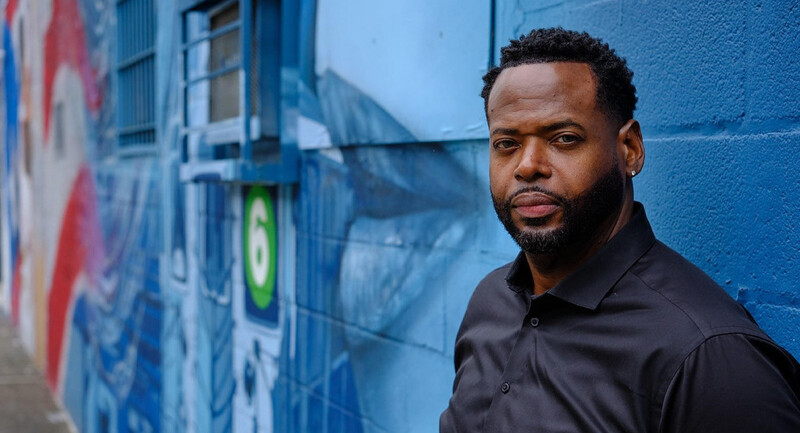Effective leaders typically have a finely tuned morning ritual: they wake up at 4:00 a.m., run five miles, and lay out a strategic plan for the day. Me, I slither out of bed at the last possible second, curse my hair, and lay out a strategic plan for lunch. Effective leaders go through every meeting with equanimity, charisma, and purpose. I go through every meeting with reminders written on my hand. Effective leaders pursue their vision unwaveringly. I am pursued by an unwavering army of doubt gremlins.
Here’s the kicker: I have serious positional authority in my district. The decisions I make every day have an impact on hundreds—sometimes a thousand—people. It’s terrifying. Am I a good enough leader to be doing this work? How do I know? How do my bosses know? How does staff know? What if people hate me? What if I’m making all the wrong decisions? If people hate me, does that mean I am making the wrong decisions or, conversely, does it mean I am making the right decisions?
Hysterical though they may sound, these questions point to the reality that, in education leadership, reputation matters just as much as innovation. If you’re in the people business, the way you make people feel profoundly impacts your success.
So how do you lead when you—and everyone around you—feel depleted and irascible? That question has been keeping my doubt gremlins employed all year.
Feeling Like a Fraud
You may have already (correctly) diagnosed me with impostor syndrome—the belief that one is a failure despite clear evidence to the contrary. Researchers have studied impostor syndrome ad nauseum through the lens of gender, race, class, and other demographic factors. I hope they break it down by industry next. I really want to know: what school or district leader doesn’t have debilitating imposter syndrome right now? Who, in any field, could navigate years of socially- and politically-fraught upheaval with steel-cut confidence, certain they were making all the right moves? Education went from a venerable social institution to an explosive combat zone with the onset of the pandemic. Every time another staff member quits, every time parents complain about a policy, leaders question their own decisions.
This school year in particular, it seems like every interaction between teachers and administrators is contentious. Most leaders have done their level best to respond to the malaise sweeping through the teaching profession and districts have provided financial bonuses, flexible working conditions, and easing of extraneous tasks. Still, teaching is such a demanding profession that these measures seem meretricious, even insulting. On top of that, an education leader’s job is not merely to respond to teachers’ problems, but to enact innovation. Pushing for change now, of all times, can make you feel like a monster—a sociopathic tyrant bludgeoning hardworking teachers with unwanted initiatives. If you had impostor syndrome before, it’s most likely on overdrive these days.
Reframing Doubt
When I watch more experienced leaders in the field (the ones who wake up at 4:00 a.m.), I sometimes get the impression that we are not supposed to admit doubt. This sort of makes sense—if you appear too unsure, why should anyone follow you? And yet, I wonder if communicating doubt—even self-doubt—can be an opportunity for closer connections with the people we lead. Empathy has been a hot topic in leadership theory for the last decade; most writing on the subject depicts a benevolent leader graciously empathizing with an overwrought team member. But what if it were the other way around? After all, everyone has moments of doubt. Am I a good parent? Did I make the right call with that student yesterday? Will I ever fit into those jeans again? Surely, our staff can empathize with us when we admit that we don’t have all the answers, that we’re not certain how a plan will work out, that we do care about how we’re perceived.
That’s how you reframe doubt: there’s something I don’t know (yet), but I can learn. I don’t know whether this is the right path, but I’m willing to learn and adjust along the way.
I wonder if leaders would have more success—or at least, better relationships—if they pressured themselves less to know and more to learn. That’s how you reframe doubt: there’s something I don’t know (yet), but I can learn. I don’t know whether this is the right path, but I’m willing to learn and adjust along the way.
Maybe you find yourself doubting your ability, your efficacy, or your intelligence. Maybe there’s a chasm between your image of a visionary leader and the mundane reality of your job. It’s OK. Commit to simple practices that turn your doubt into a strength: ask a lot of questions; model your learning process; and present yourself as a real person, not a utopian ideal. If, like me, you’re sometimes intimidated by your own power, use that feeling as a motivation to continually reflect on your plans. Most important, use this exceptionally challenging time as a chance to connect with others—especially the people you lead, who, most likely, have felt the same pangs of imposter syndrome.








